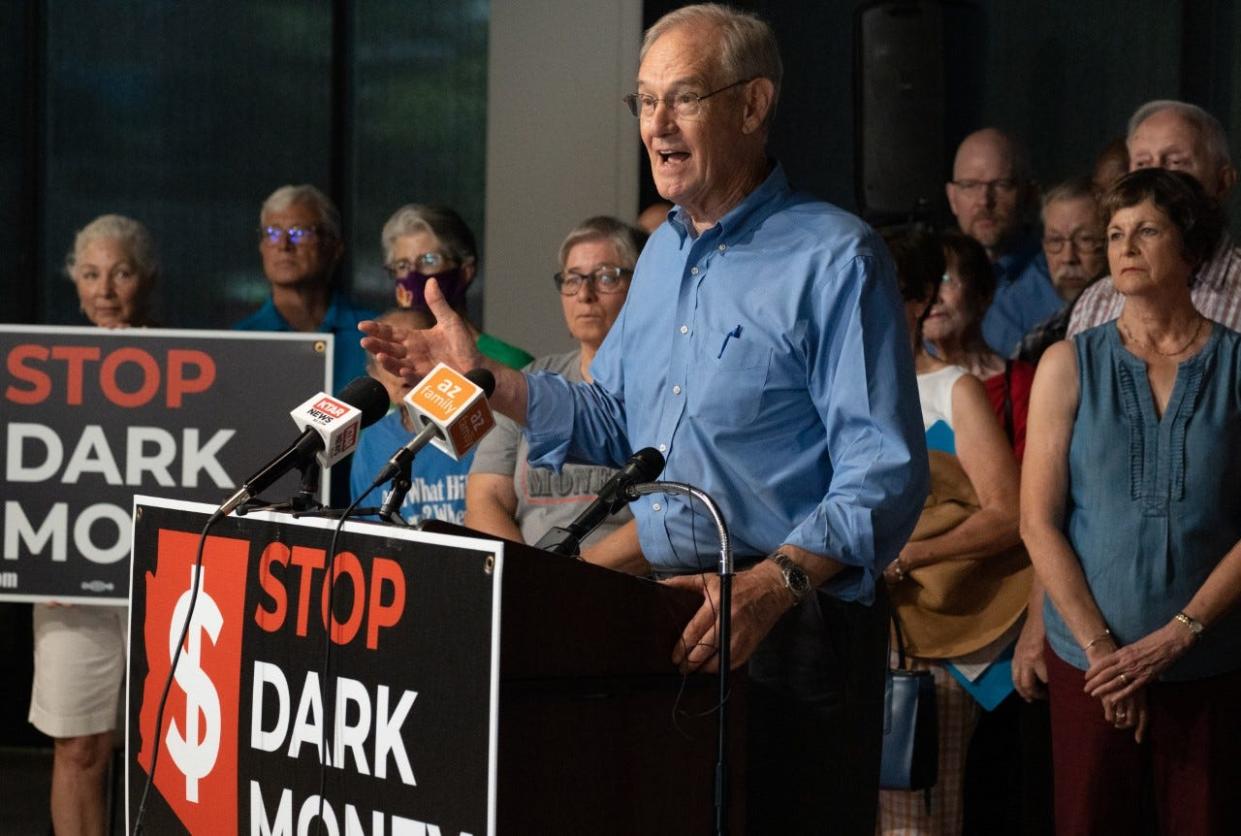Judge foils (for now) Arizona Republicans' effort to keep 'dark money' in the dark

- Oops!Something went wrong.Please try again later.
- Oops!Something went wrong.Please try again later.
Between Christmas and New Year’s, a Maricopa County Superior Court judge gave the voters of Arizona the gift of … light.
For now.
Judge Timothy Ryan turned away a lawsuit filed by Arizona’s Republican House Speaker Ben Toma and Senate President Warren Petersen that hoped to block an anti-“dark money” law that was overwhelmingly approved by voters in 2022.
Proposition 211, the Voters’ Right to Know Act, says that a person or organization that spends $50,000 on a statewide campaign or $25,000 on a local campaign must disclose the origin of any contribution over $5,000.
It doesn’t prevent any person or organization from donating money. It just requires them to own up to it. And for good reason.
Money talks. Let's see who it speaks for
During an election season, like the one coming up, personal endorsements tell us a thing or two about an issue or a politician.
But endorsements are just words. And you know what they say: Money talks and …
The support a candidate gets in the form of cold hard cash tells us a LOT more. And knowing who doles out that money is exactly the kind of information voters deserve to have.
Yet for years, Arizona’s Republican-controlled Legislature has failed to pass a law shining a light on dark money, the kind of anonymous donations to campaigns that can sway an election.
Federal lawsuit would protect dark money
The latest judge’s decision could be appealed.
Arizona Attorney General Kris Mayes, Secretary of State Adrian Fontes and the Citizens Clean Elections Commission, which will enforce the disclosures, all have stood firmly behind the citizens initiative.
Toma and Petersen, part of a long line of GOP opponents, would prefer to keep us from knowing the names of their favorite fat cats.
Arizona acted against dark money: Nation should, too
Likewise, the fat cats would prefer to remain in the shadows.
That is why a group called Americans for Prosperity has filed a federal lawsuit, also aimed at protecting the identity of each and every Daddy Warbucks.
Disclosure is not 'governmental doxing'
The attorneys for this group say requiring individuals or groups to own up to their monetary support violates free speech rights and amounts to “governmental doxing.”
They got the vernacular right, but they got the meaning dead wrong. Doxing is slang for maliciously posting information about a person on the internet without consent.
Dark money groups aren’t like the average Joes who state anonymous opinions online.
They are 1-percenters trying to influence the outcome of elections — with money. There is nothing malicious about requiring such individuals or groups to identify themselves.
What is malicious, however, is allowing such power brokers to operate in secret.
I cannot imagine why any politician from any political party would support that.
Wait … yes, I can.
Reach Montini at ed.montini@arizonarepublic.com.
For more opinions content, please subscribe.
This article originally appeared on Arizona Republic: 'Dark money' won't remain in the dark, for now, in Arizona

